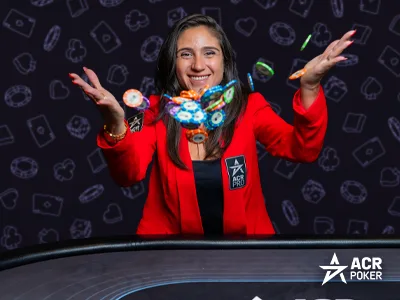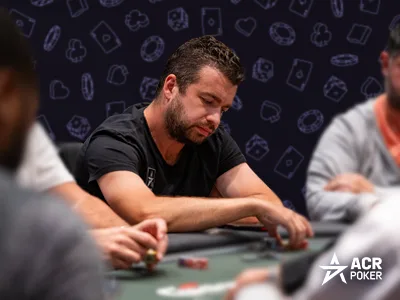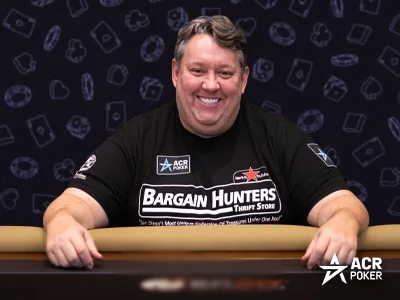Over time, disciplined adjustments create a balanced big blind strategy that is difficult to exploit Defending the big blind is already challenging, and adding check-raises requires careful balance. Many players either never check-raise or do it far too often. Finding the right frequency keeps opponents guessing and protects your range. The big blind closes the
Category: How to
Combining Cold Deck Strategies with Advanced Techniques
Players who adapt intelligently rather than panic give themselves the best chance to weather tough stretches Every poker player eventually runs into a cold deck. Premium hands disappear, strong holdings get cracked, and momentum feels impossible to find. Advanced players understand that surviving these stretches requires more than patience; it demands strategic adjustment. A cold
Securing a Seat vs. Building a Stack in Poker Tournaments
Mastering the balance between securing a seat and building a stack is what separates cashers from contenders Tournament poker forces players to balance survival with ambition. Every decision can shape whether you simply last long enough to cash or build a stack capable of chasing the title. Understanding when to protect your chips and when
Utilizing C-Bets in Texas Hold’em Heads-Up Play
Strong heads-up players treat continuation betting as a flexible weapon, not an automatic habit Heads-up Texas Hold’em is a different game from full-ring poker. Ranges widen, aggression increases, and small edges matter more. Continuation betting becomes one of the most important tools in this format. In heads-up play, you raise frequently from the button. That
Exploiting Aggressive Opponents from the Big Blind
When executed correctly, defending becomes a profitable part of your overall game plan Facing aggressive opponents from the big blind can feel uncomfortable, especially when they raise frequently from late position. Intermediate players often struggle between defending too wide and folding too often. The key is finding balance while targeting specific leaks. Start by understanding
Playing with Perception During Cold Streaks in Texas Hold’em
Playing with perception during these stretches turns adversity into a strategic edge Cold streaks are inevitable in Texas Hold’em, but how you handle them often matters more than the cards themselves. Many players tighten up too obviously or tilt without realizing it. Both reactions change how others perceive you at the table. Perception becomes a
Avoiding Common Mistakes in Short Deck Hold’em
Adjust hand values, and understand equity shifts to sidestep common traps Short Deck Hold’em, also known as Six-Plus Hold’em, looks similar to traditional Texas Hold’em but plays very differently. With all cards below six removed, hand values shift, and equities run closer. Many players lose money simply by applying a full-deck strategy to a short-deck
Playing Multi-Way Pots from the Big Blind in Texas Hold’em
Success from the big blind in multi-way pots comes from patience and selectivity Playing from the big blind in multi-way pots is one of the toughest spots in Texas Hold’em. You close the action preflop, but you’ll often be out of position after the flop. That combination demands discipline and clear thinking. Because you already
Recognizing When to Tighten up After Rebuys End
Tightening up at the right time keeps you ahead of those who fail to recognize the shift Rebuy tournaments create a wild early atmosphere. Players take risks, gamble with marginal hands, and reload when things go wrong. Once the rebuy period ends, however, the dynamic changes quickly. Recognizing that shift is key to protecting your
Identifying and Exploiting Opponents’ Weaknesses in Heads-up Poker
Exploiting weaknesses is about consistent adjustments based on evidence Heads-up poker is a different animal compared to full-ring or six-max games. With only two players battling, every decision carries more weight. Success often comes down to recognizing your opponent’s tendencies quickly and adjusting before they adjust to you. The first step is observation. Pay attention
Adjusting to Different Stack Sizes in the Big Blind
Adjusting to stack sizes helps reduce costly mistakes and allows you to defend more confidently Playing from the big blind can feel uncomfortable for beginners, especially because you are forced to put chips in before seeing your cards. The key to handling this spot well is understanding how stack sizes change your decisions. Your strategy
Utilizing a Tight-Aggressive Strategy to Minimize Cold Deck Losses
A disciplined, tight-aggressive framework provides structure, helping you limit losses Cold decks are part of poker. Sometimes strong starting hands run into even stronger holdings, and chips disappear quickly. While no strategy can eliminate bad luck, a tight-aggressive approach can reduce the damage during those stretches. Playing tight means entering pots with solid starting hands.












